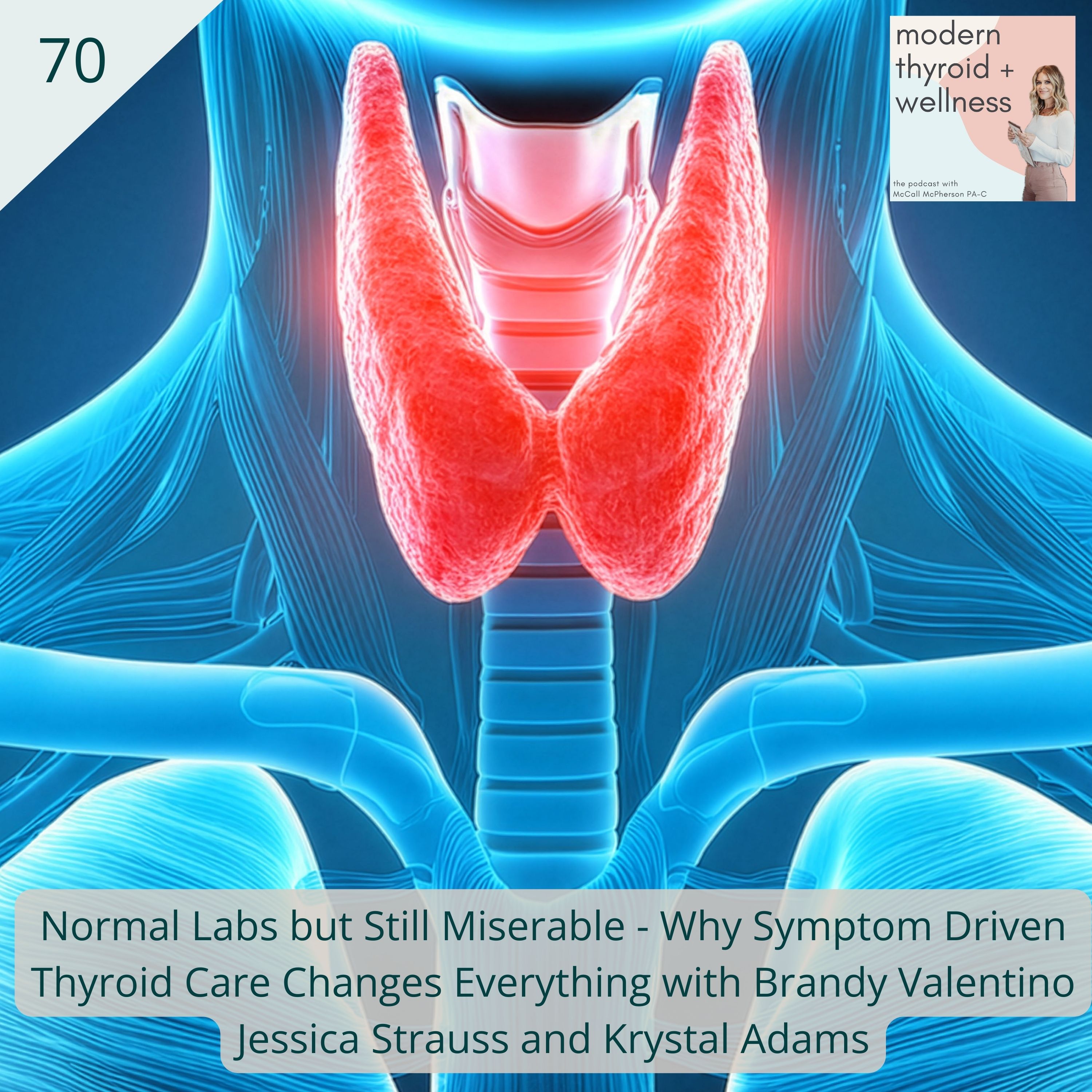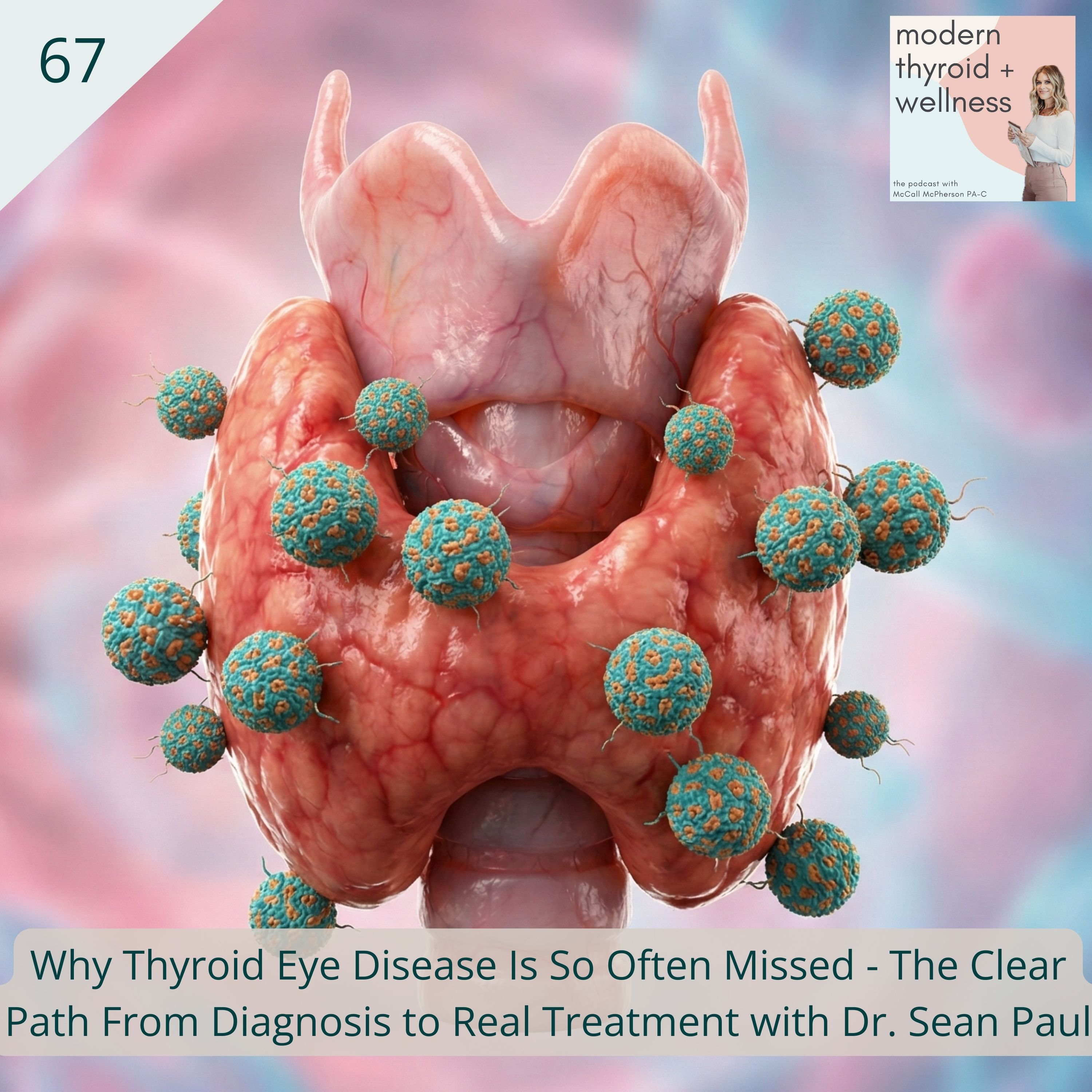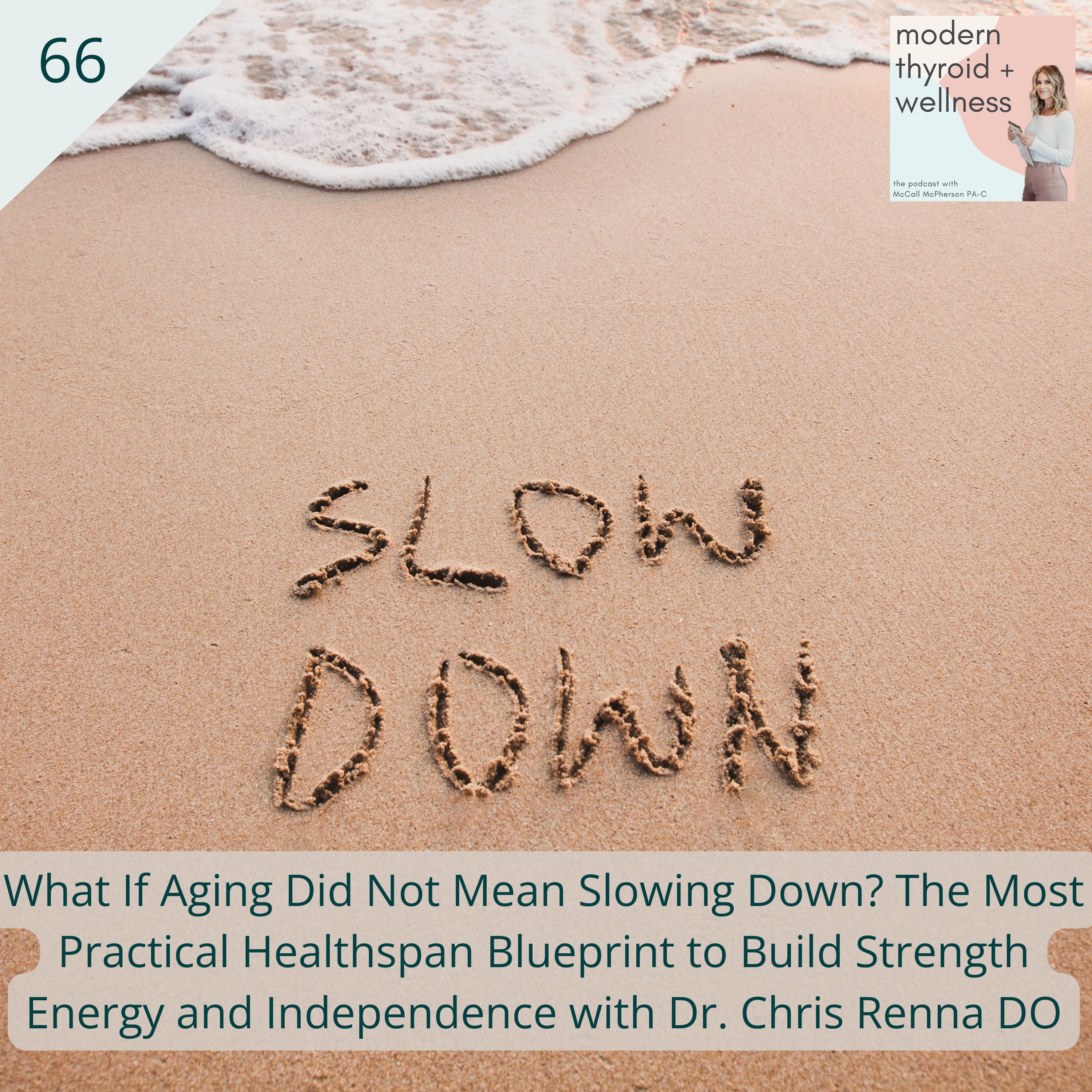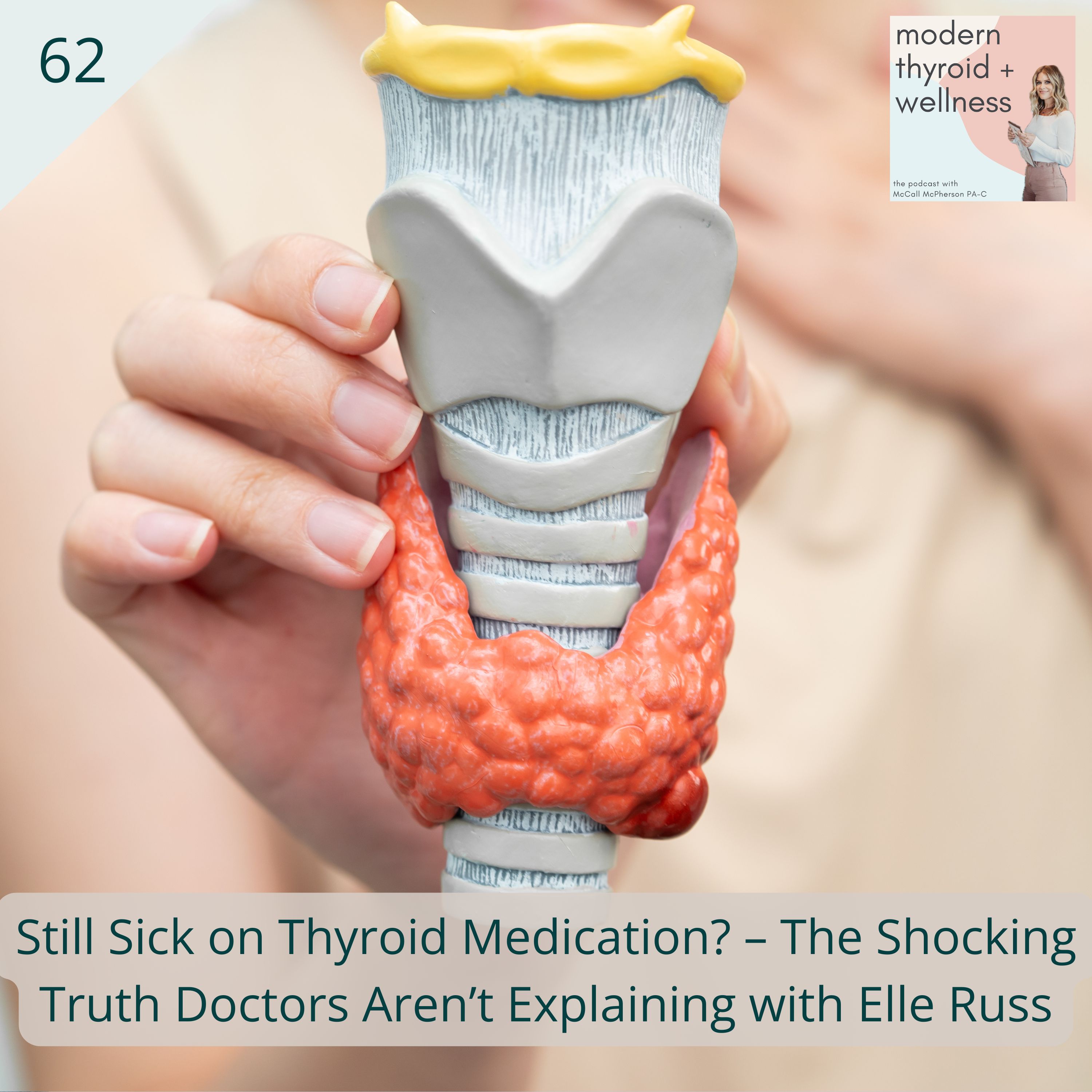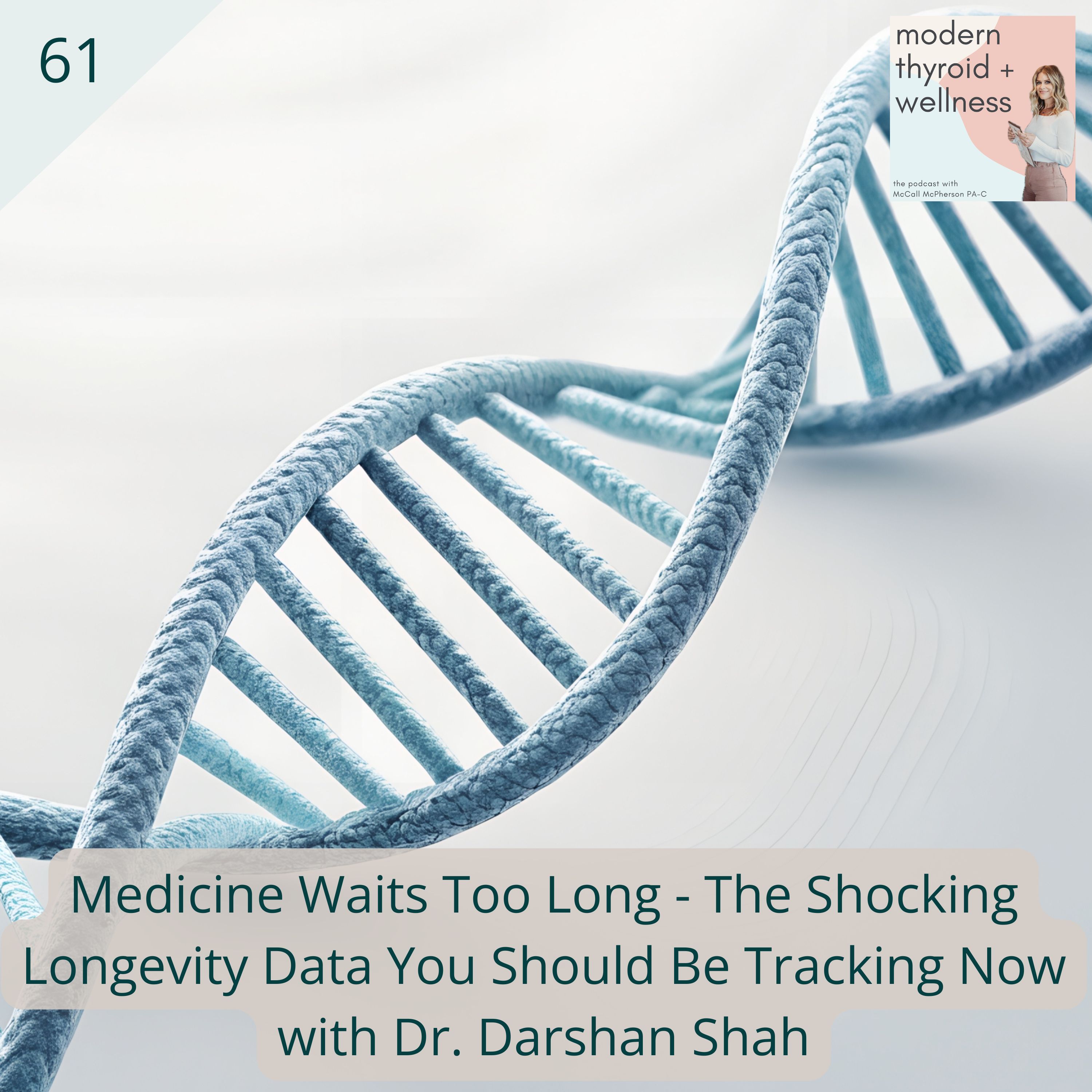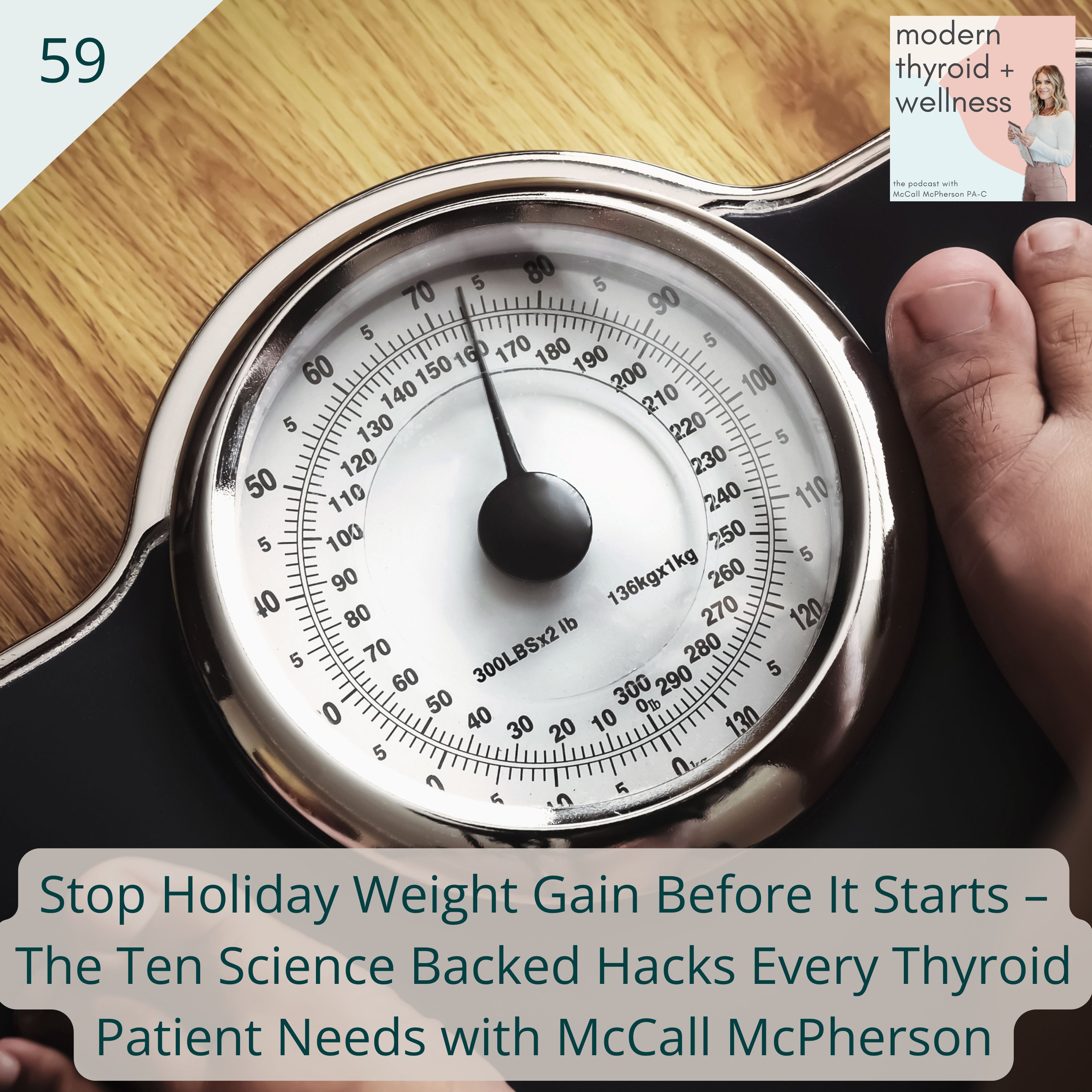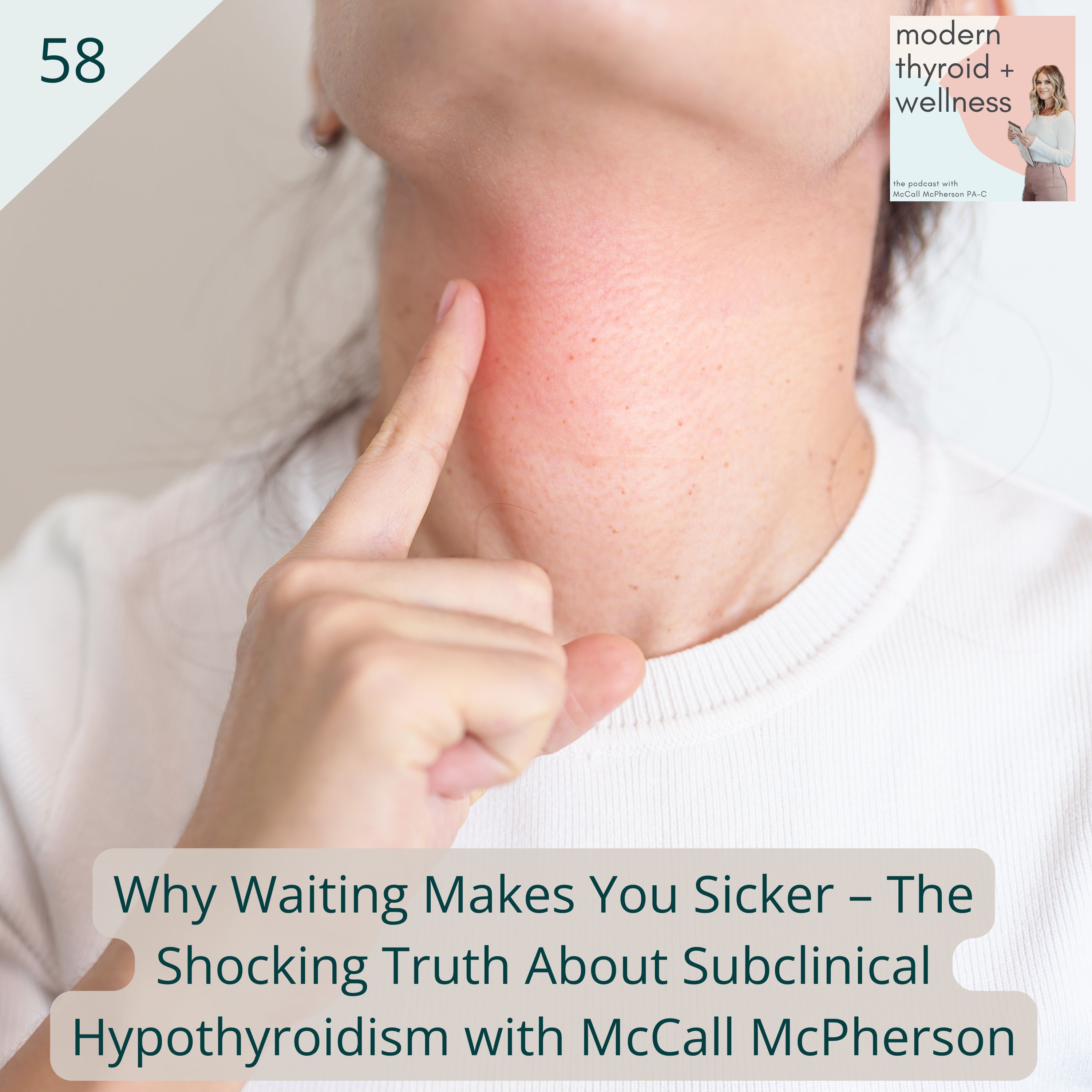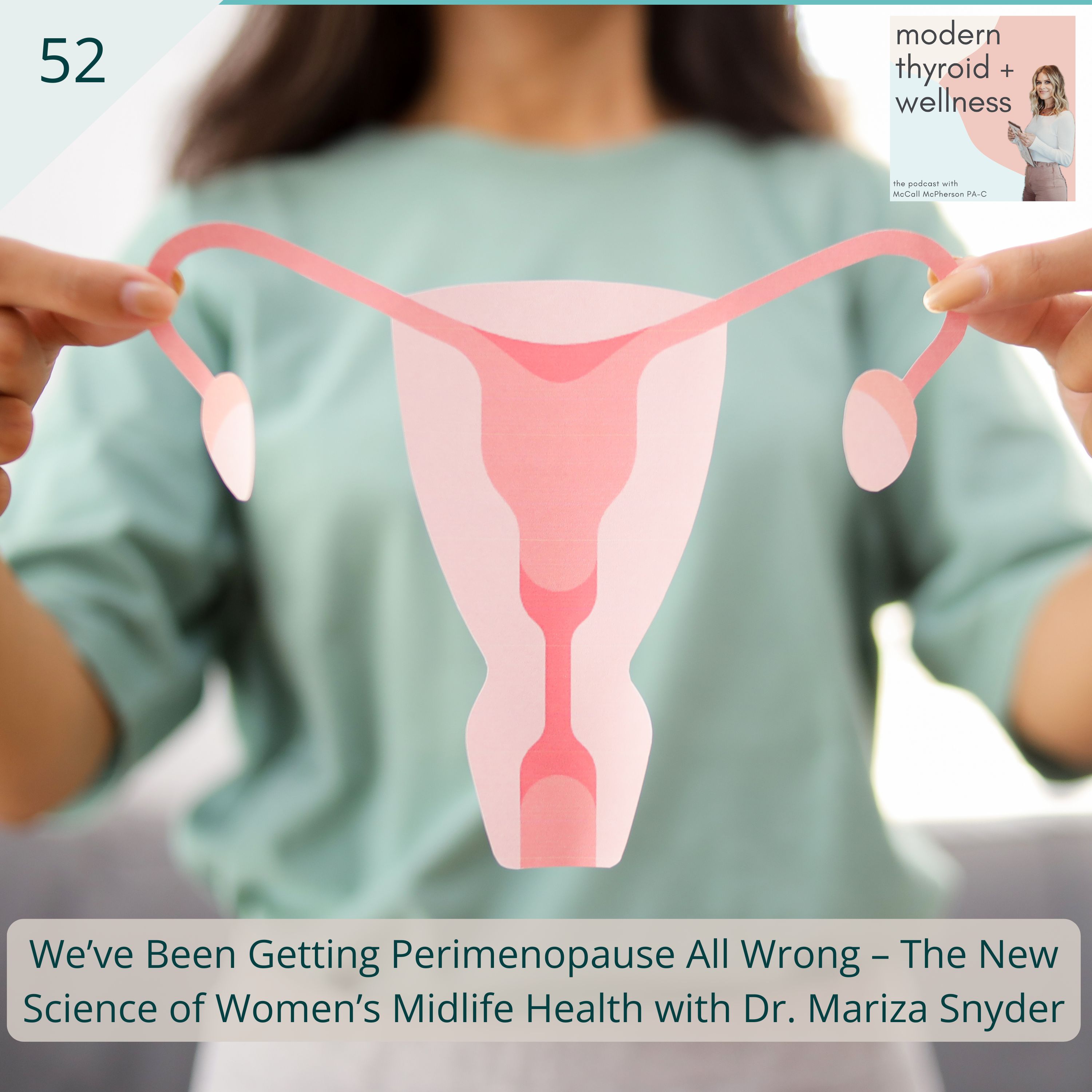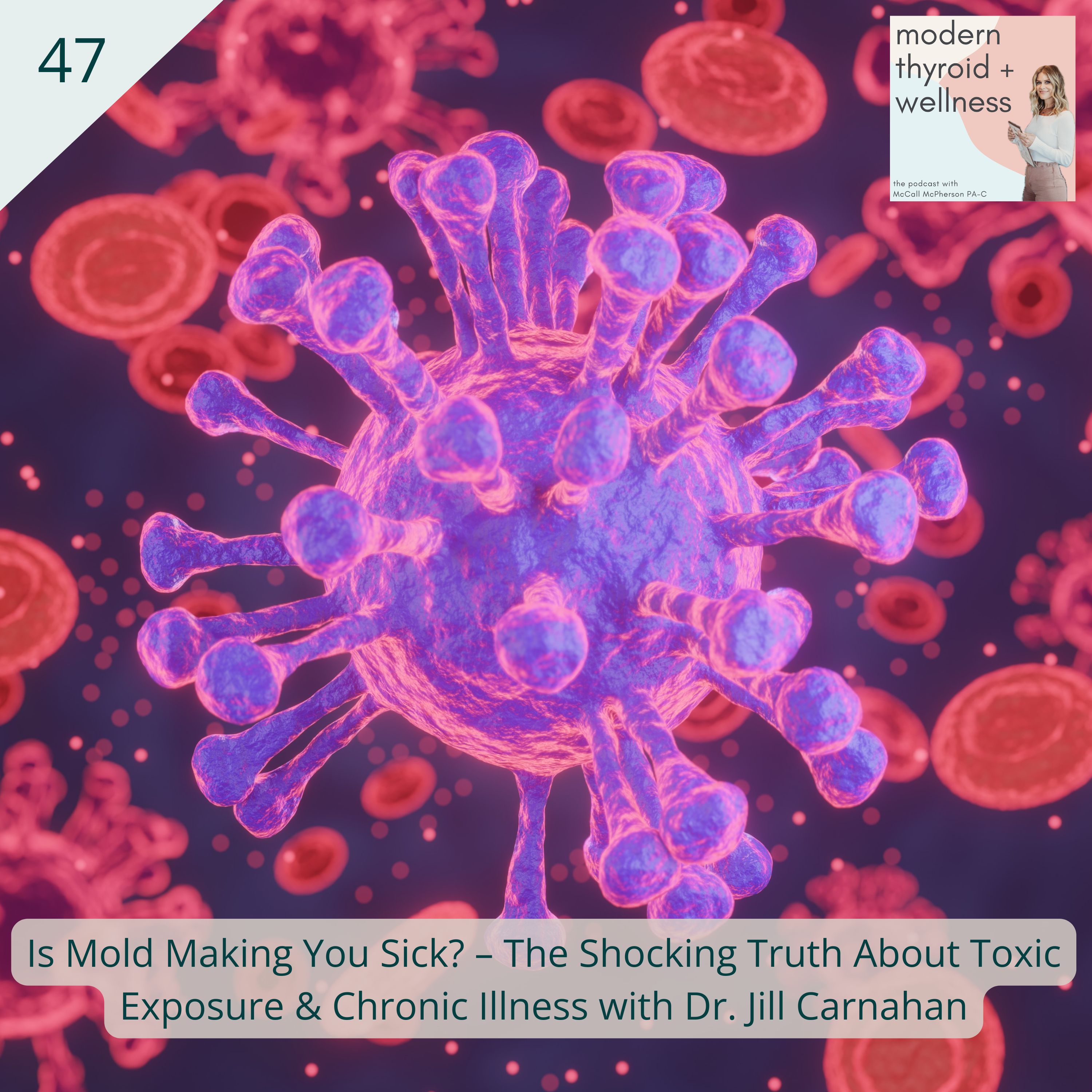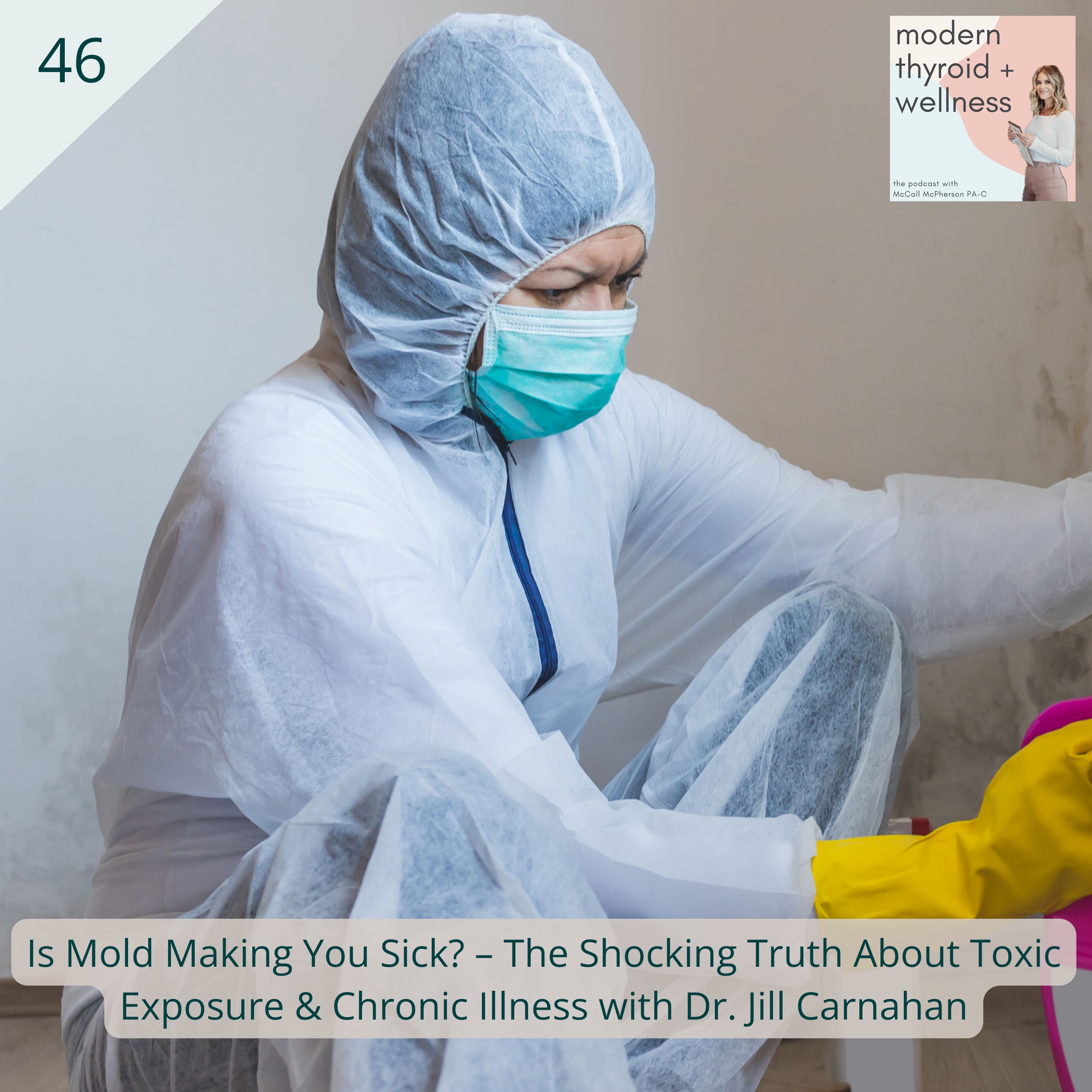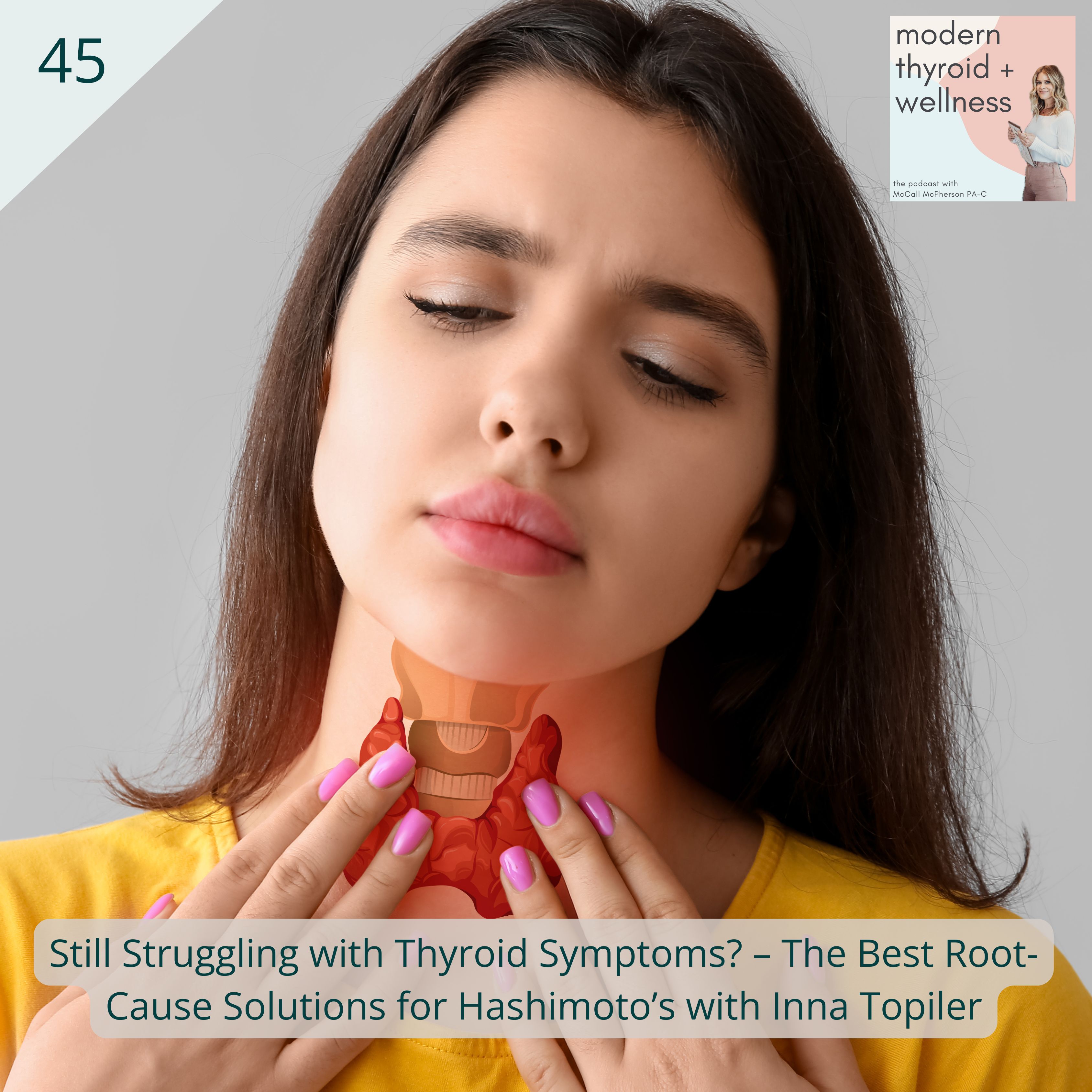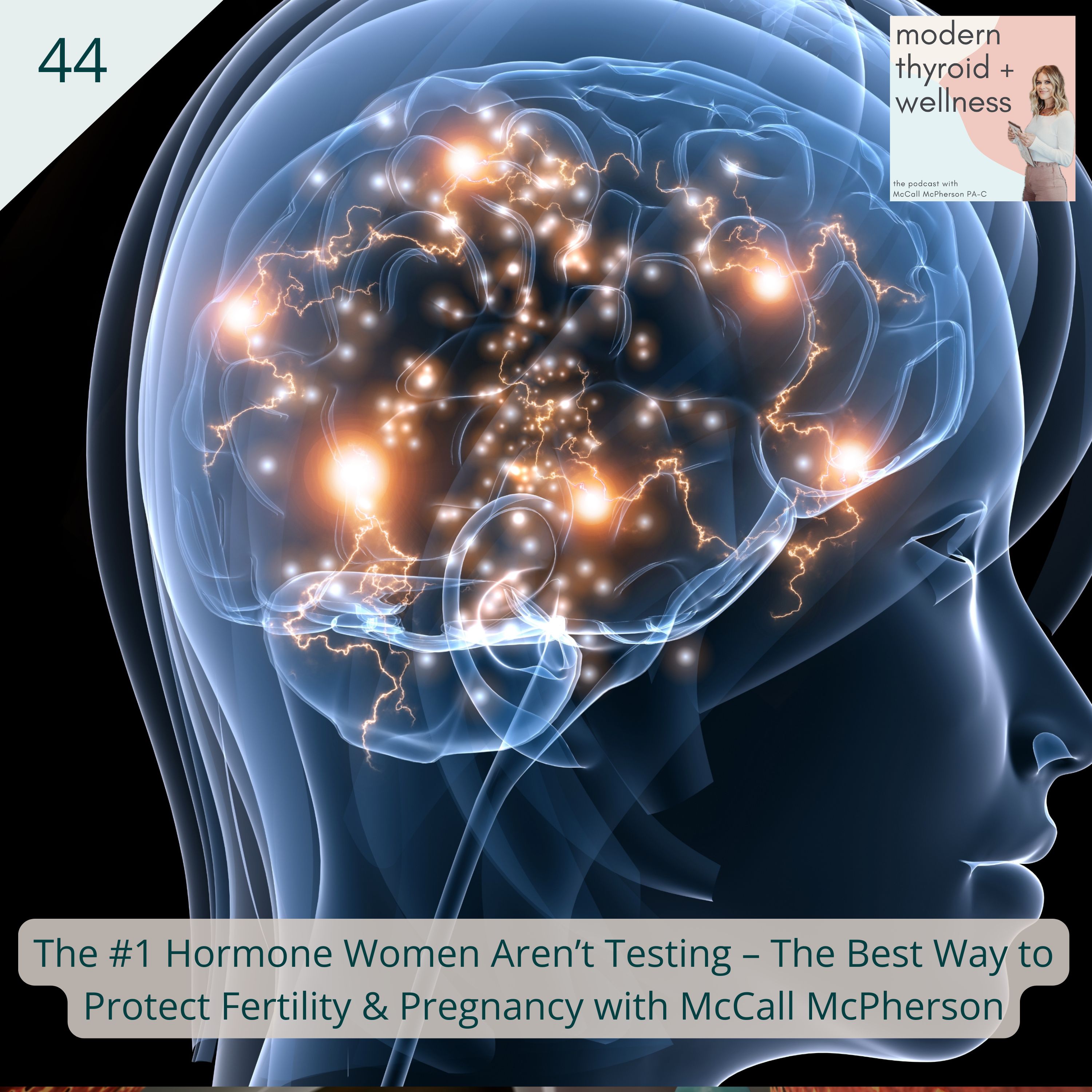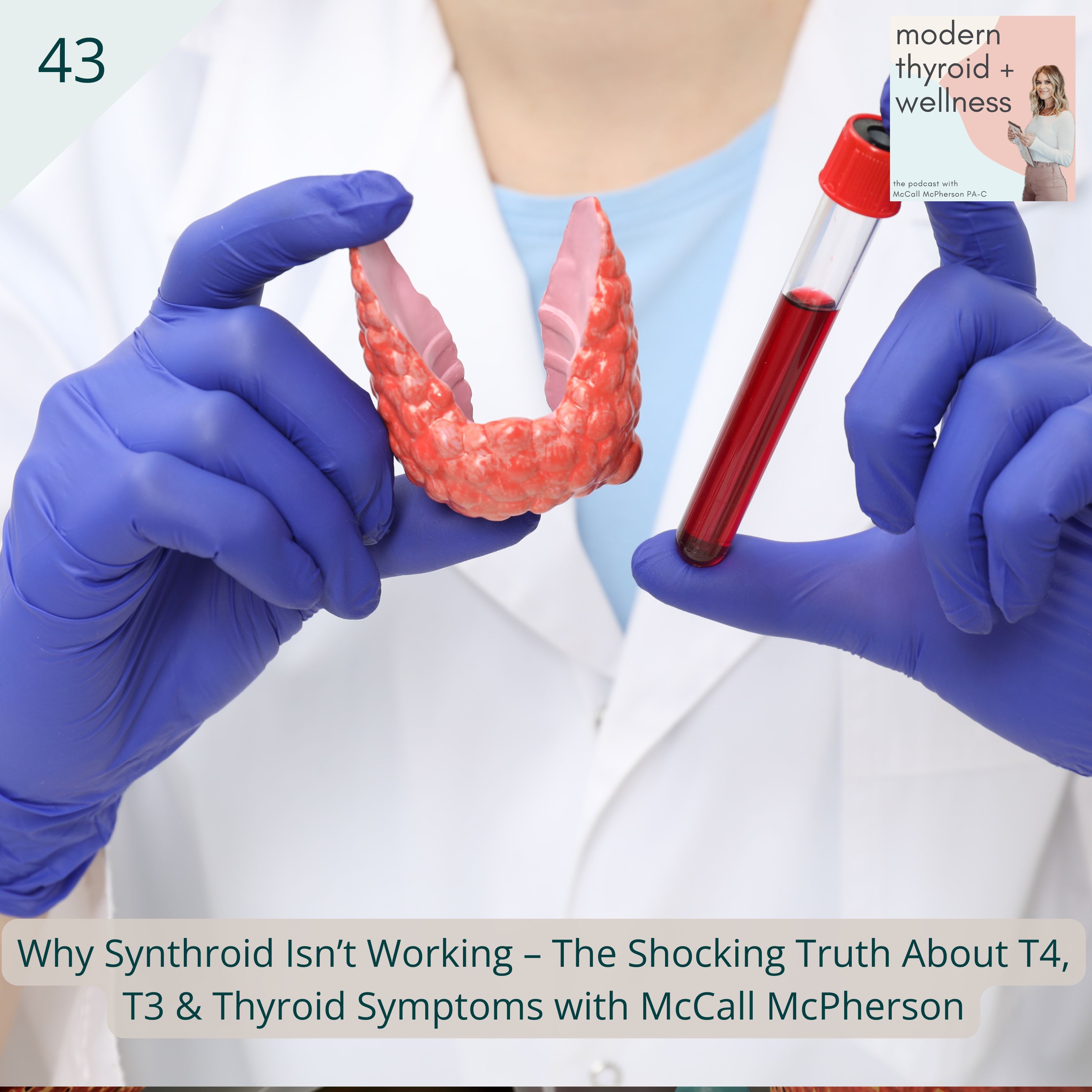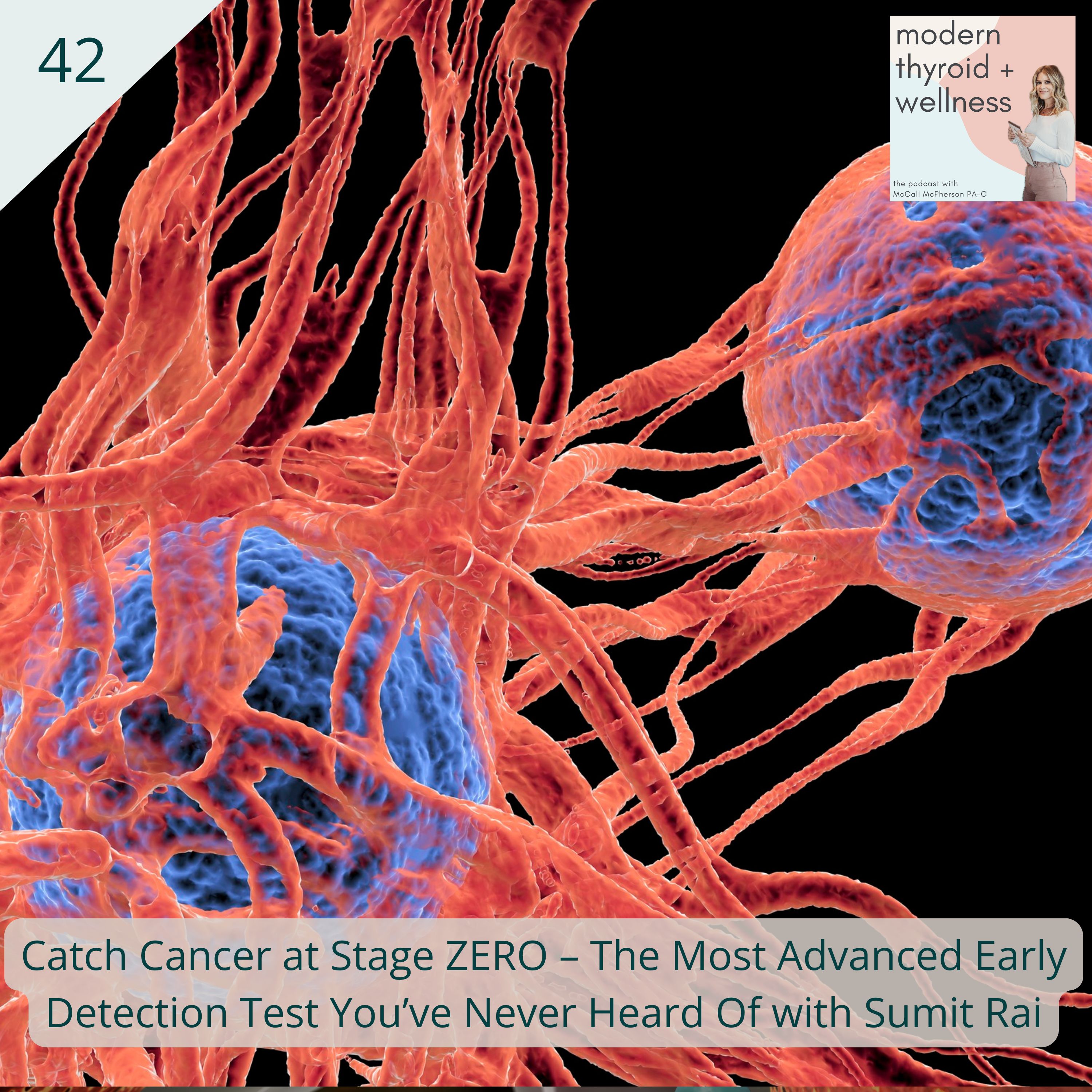The Ultimate Guide to Thyroid and Hormone Health: Expert Answers from McCall McPherson’s AMA
Thyroid health is a complex, often misunderstood topic that impacts everything from metabolism and weight to fertility, mood, and long-term wellness. In a recent “Ask Me Anything” (AMA) podcast episode, McCall McPherson—a seasoned medical professional and thyroid expert—tackled a wide array of audience questions, offering nuanced, actionable advice rooted in both clinical experience and personal insight.
This comprehensive blog post distills the main themes and expert tips from McCall’s episode, breaking down each topic in detail. Whether you’re struggling with hypothyroidism, navigating hormone replacement therapy, or seeking to optimize your metabolic health, you’ll find in-depth guidance and practical strategies here.
Table of Contents
- Optimizing Thyroid Medication: Armour and Desiccated Thyroid
- Thyroid Lab Testing: Timing and Interpretation
- Understanding Reverse T3: The Stress Connection
- Thyroidectomy: Special Considerations
- Methylation and MTHFR: Myths vs. Reality
- Emotional Stress and Thyroid Health
- Hashimoto’s, Fertility, and Antibodies
- Nutrient Deficiencies: What to Test and Supplement
- Heart Palpitations and Adrenal Compensation
- Medication Timing: Food, Coffee, and GLP-1s
- Postpartum Autoimmune Thyroiditis
- Natural Alternatives to Prescription Thyroid Medications
- Root Cause Analysis: Hypothyroidism vs. Hashimoto’s
- Hormone Replacement Therapy: Safety, Dosing, and Monitoring
- Weight Loss, Metabolism, and GLP-1s
- Diet, Exercise, and Insulin Resistance
- Testosterone, Progesterone, and Secondary Hormone Issues
- Adrenal Health and Caffeine
- Lifestyle, Self-Care, and Embracing Discomfort
- Key Takeaways and Action Steps
1. Optimizing Thyroid Medication: Armour and Desiccated Thyroid
Key Insights:
- Armour thyroid and other desiccated thyroid medications contain both T4 (inactive) and T3 (active) hormones.
- T3 is short-acting, peaking and dropping within 6–8 hours (sometimes less).
- Dosing Strategy: Split your dose—take half in the morning, half in the late afternoon—to maintain stable hormone levels.
Actionable Advice:
- If you’re on Armour or similar, discuss twice-daily dosing with your provider.
- Monitor for symptoms of over- or under-medication, especially if you feel a “crash” in the afternoon or evening.
2. Thyroid Lab Testing: Timing and Interpretation
Key Insights:
- Lab timing is critical. T3 peaks 3–4 hours after dosing.
- Drawing labs too long after your last dose (e.g., next morning) can show falsely low T3, leading to unnecessary dose increases.
Actionable Advice:
- Schedule blood draws 3–4 hours after your morning thyroid dose.
- Always inform your provider of your medication timing relative to labs.
3. Understanding Reverse T3: The Stress Connection
Key Insights:
- Reverse T3 (rT3) is an inactive hormone that blocks T3 at the receptor level.
- rT3 rises during stress, illness, inflammation, micronutrient deficiencies, severe caloric restriction, and over-exercising.
- Excess T4 (especially from levothyroxine) can worsen rT3 in poor converters.
Actionable Advice:
- Address lifestyle factors: manage stress, optimize sleep, avoid overtraining, and ensure adequate nutrition.
- If on T4-only therapy and still symptomatic, discuss rT3 testing and possible medication adjustments with your provider.
4. Thyroidectomy: Special Considerations
Key Insights:
- After thyroid removal, you rely entirely on medication.
- McCall prefers to keep TSH lower in these patients to avoid unnecessary stimulation of a non-functioning gland.
Actionable Advice:
- Work closely with your provider to fine-tune dosing.
- Monitor symptoms and labs more frequently, especially after surgery.
5. Methylation and MTHFR: Myths vs. Reality
Key Insights:
- Methylation issues (like MTHFR mutations) are often overemphasized online.
- In practice, addressing methylation rarely leads to dramatic improvement in thyroid symptoms.
- Overuse of methylated folate can cause side effects.
Actionable Advice:
- Don’t self-prescribe high-dose methylated supplements.
- Seek guidance from a qualified medical professional, not just online influencers.
6. Emotional Stress and Thyroid Health
Key Insights:
- Stress impairs thyroid hormone activation and increases rT3.
- Can trigger or worsen autoimmune thyroid conditions (e.g., Hashimoto’s).
Actionable Advice:
- Incorporate stress management: daily walks, meditation, or apps like New Calm.
- Consider supplements like Memetic for sleep support (as per McCall’s experience).
7. Hashimoto’s, Fertility, and Antibodies
Key Insights:
- High thyroid antibodies increase miscarriage risk and disrupt hormone balance.
- Optimizing thyroid function is crucial before conception.
Actionable Advice:
- Test for thyroid antibodies (TPO, thyroglobulin) if planning pregnancy.
- Work with your provider to achieve optimal thyroid levels pre-conception.
8. Nutrient Deficiencies: What to Test and Supplement
Key Insights:
- Common deficiencies: B12, ferritin, B6.
- Iodine deficiency is rare; routine testing not usually necessary.
- Advanced micronutrient testing (e.g., NutrEval) can be helpful.
Actionable Advice:
- Request labs for B12, ferritin, and B6.
- Supplement only if deficient, and avoid unnecessary iodine unless directed.
9. Heart Palpitations and Adrenal Compensation
Key Insights:
- Palpitations in Hashimoto’s often stem from adrenal stress hormones compensating for low thyroid function.
- More common in Hashimoto’s than in simple hypothyroidism.
Actionable Advice:
- Address both thyroid and adrenal health.
- If palpitations persist, discuss adrenal testing and support with your provider.
10. Medication Timing: Food, Coffee, and GLP-1s
Key Insights:
- Wait 30 minutes after thyroid meds before eating; 1–1.5 hours if on GLP-1s.
- Coffee/tea can be consumed almost immediately after thyroid medication.
Actionable Advice:
- Set a morning routine to ensure proper absorption.
- If on GLP-1s, extend the fasting window after medication.
11. Postpartum Autoimmune Thyroiditis
Key Insights:
- Affects ~10% of women post-pregnancy due to immune system rebound.
- Can be transient or lead to permanent hypothyroidism.
Actionable Advice:
- Monitor thyroid function and antibodies postpartum.
- Early intervention can prevent long-term complications.
12. Natural Alternatives to Prescription Thyroid Medications
Key Insights:
- Unregulated supplements with thyroid hormones are dangerous and unpredictable.
- Regulated desiccated thyroid (e.g., Armour, Ren Thyroid) is preferred for those seeking “natural” options.
Actionable Advice:
- Avoid over-the-counter thyroid supplements.
- Discuss regulated natural options with your provider if interested.
13. Root Cause Analysis: Hypothyroidism vs. Hashimoto’s
Key Insights:
- For hypothyroidism, hormone replacement is essential.
- Root cause approaches (e.g., reducing inflammation, preserving thyroid tissue) are more relevant for Hashimoto’s.
Actionable Advice:
- Don’t delay medication in hypothyroidism.
- In Hashimoto’s, work to lower antibodies and address triggers (stress, diet, etc.).
14. Hormone Replacement Therapy: Safety, Dosing, and Monitoring
Key Insights:
- HRT should restore hormones to physiologically normal—not supra-physiological—levels.
- Modern research shows HRT can reduce risks of heart disease, neurodegeneration, and some cancers.
- Blood testing is more reliable than DUTCH (saliva/urine) testing for monitoring.
Actionable Advice:
- Discuss conservative, symptom-relieving HRT with your provider.
- Use blood tests to monitor therapy, not just symptoms or alternative testing.
15. Weight Loss, Metabolism, and GLP-1s
Key Insights:
- Thyroid dysfunction impairs weight loss,


